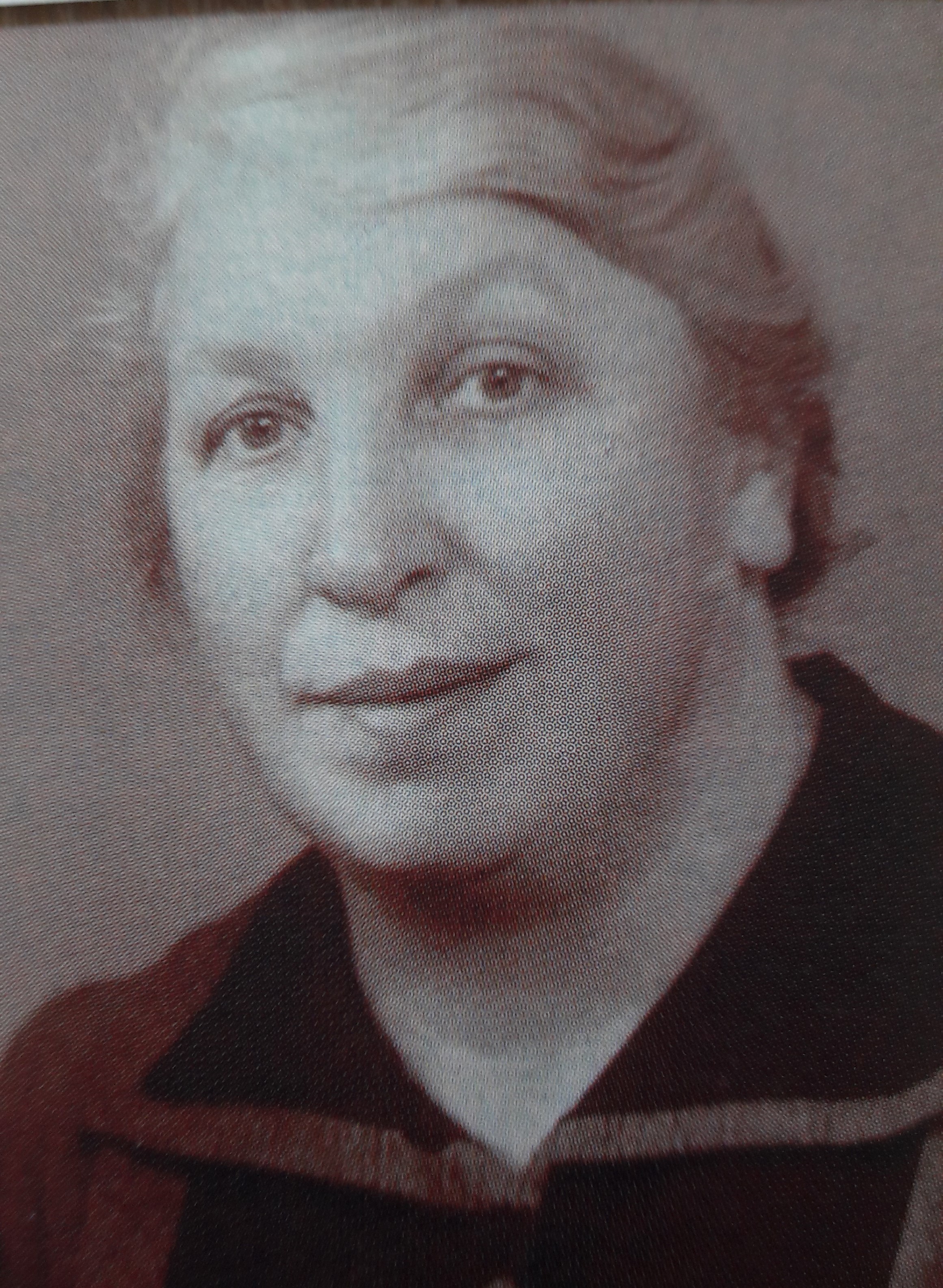Antonina Alexandrowna Nikiforowa
16.06.1907 – 08.08.2001 St.Petersburg
Physician, Soviet military doctor
Maidanek: 1943 - April 1944 Ravensbrück: 21. April 1944 – Mai 1945

Antonina Alexandrowna Nikiforowa, Foto: privat
Antonina Alexandrovna Nikiforova was born in St. Petersburg in June 1907, the sixth child in the family of a postal worker.
The family became impoverished when the father passed away in 1918. The initially ailing girl was housed in the children's home for some time. In 1923 she graduated from a general vocational school. She then attended a two-year medical vocational school and then worked as a nurse in the city of Isvar (Volosovsky district in the Leningrad region), preparing for the entrance exams for medical studies. From 1931 she studied at the medical institute called "Academician Ivan Pavlov" in Leningrad, graduated in 1936 as a qualified student specializing in "anatomist in pathology" and began her traineeship at the chair of the famous pathologist Dr. Schor.
In 1939 she was drafted into the Red Army, where she served until March 1941. Their demobilization did not take place because Germany had invaded the Soviet Union in June 1941.
As a Soviet military doctor 3rd rank, captain of the medical service, she had been serving in a naval hospital of the coastal defense of the Baltic fleet on the island of Eselj Saaremaa in Kuresaare since June 23, 1941.
On October 5, 1941, she and her military hospital were taken prisoner by Germany. After being imprisoned in various POW camps in Estonia, Lithuania and Poland, she was sent to the Majdanek concentration camp in 1943 because she refused to do forced labor for the German industry. In the course of the gradual evacuation of the camp, she arrived in Ravensbrück on April 21, 1944. There she was employed in the pathology department and in the infirmary as a prisoner doctor and was involved in the rescue of many prisoners, as is evident from the traditions of Russian women who survived imprisonment in the camp.
After the liberation she was the main doctor in charge of the Soviet Infection Hospital in Ravensbrück. In December 1945 Antonina Nikiforova returned to Leningrad, but was not granted a residence permit for the city. After three months of illegal stay with her sister, she moved to Siberia and worked as a senior doctor in a hospital in Sujerka, in the Tyumen region. While in Ravensbrück she had resolved: “If I stay alive, I will take care of a child.” This wish came true in Sujarka, where she took the boy Arkadij with her.
Together with him, she returned to Leningrad in the summer of 1948, raised him, enabled him to get an education, saw his wedding and several grandchildren. Until she retired, she worked as a pathologist-anatomist in the city hospital “S. P. Botkin ".
After the liberation, Antonina Nikiforova made it her life's work to report on Ravensbrück, to clarify the Nazi crimes and to urge peace. In this sense, she has done huge educational and antiwar work. She corresponded with many former fellow prisoners all over Europe, collected the incoming letters and materials on prisoners of war and concentration camps. This resulted in an extensive estate from this extraordinary woman. Her friendship with former Ravensbrück prisoners from France and other countries lasted her whole life.
Antonina Nikiforowa has written two books on the subject of Ravensbrück and War:
In 1957 she published her notes “This must not be repeated”. It is based on her own memories as well as the experiences of other former women prisoners and bears witness to the events in the Ravensbrück concentration camp. Her publication led to many Soviet women opening up to her and telling her about their war fates in numerous letters.
In 1967 her second book was published: “Stories about struggle and friendship”, which contains not only memories from Ravensbrück but also the post-war experiences of her friends from the time of internment.
Sources: Written down by Natalja Timofejewa after talks with Stella Nikiforova in spring 2020; "Ravensbrückerinnen", Ed. Sigrid Jacobeit with Elisabeth Brümann-Güdter, pp. 127-130, Brandenburg Memorials Foundation and Edition Hentrich, 1995, ISBN 3-89468-163-2 and "Prisoners of War Red Army soldiers in the concentration camp. Soviet military doctors in Ravensbrück ”, German-Russian Museum Berlin-Karlshorst, 2016